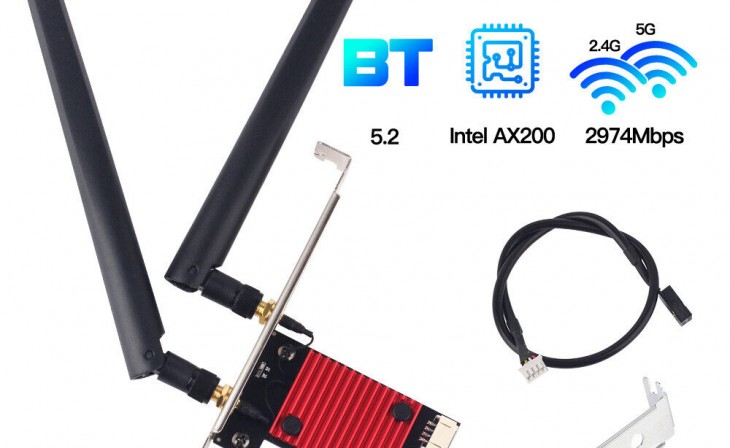Exploring the Role of a WiFi Card in a PC: Enhancing Connectivity and Performance
What is a WiFi Card?
A WiFi card is a small electronic device that allows a computer to connect to wireless networks, such as home or office WiFi networks or public hotspots. It serves as the interface between the computer and the wireless network, enabling data transmission and reception wirelessly. WiFi cards are typically installed internally in a PC, either via a PCIe slot on the motherboard or an M.2 slot, although external USB WiFi adapters are also available.
Benefits of Using a WiFi Card
-
Wireless Connectivity: The primary benefit of a WiFi card is the ability to connect to wireless networks. This eliminates the need for physical Ethernet cables, providing greater freedom and flexibility in terms of where you can use your PC within the range of a WiFi network.
-
Convenience: WiFi cards make it easy to connect to WiFi networks without the hassle of cables. This is especially useful for laptops and desktop PCs located in areas where running Ethernet cables may be impractical or aesthetically unappealing.
-
Mobility: WiFi cards allow you to connect to wireless networks on the go, such as in cafes, airports, or hotels. This enables you to stay connected and productive without relying on wired connections.
-
Scalability: WiFi cards offer scalability, allowing multiple devices to connect to the same wireless network. This is particularly useful in households or offices with multiple PCs, laptops, smartphones, and other WiFi-enabled devices.
-
Improved Performance: Modern WiFi cards support high-speed wireless standards, such as 802.11ac or the latest 802.11ax (Wi-Fi 6). These standards provide faster data transfer rates, reduced latency, and improved overall performance compared to older WiFi technologies.
Enhancing Connectivity and Performance
A WiFi card can significantly enhance the connectivity and performance of your PC by providing a reliable and fast wireless connection. Here are some ways in which a WiFi card achieves this:
-
Fast Data Transfer Rates: WiFi cards that support the latest wireless standards, such as Wi-Fi 6, offer faster data transfer rates, allowing for quick and seamless file transfers, online gaming, streaming, and downloading large files.
-
Reduced Latency: WiFi cards with advanced features, such as MU-MIMO (Multi-User Multiple Input Multiple Output) and OFDMA (Orthogonal Frequency Division Multiple Access), can reduce latency and improve responsiveness, making them ideal for online gaming and real-time applications.
-
Dual-Band Support: Many WiFi cards support both 2.4 GHz and 5 GHz frequency bands. The 2.4 GHz band provides better coverage and can penetrate walls and obstacles more effectively, while the 5 GHz band offers faster speeds and is less prone to interference.
-
Antenna Design and Placement: WiFi cards often come with external antennas or multiple antenna configurations that improve signal strength and reception. These antennas can be adjusted or positioned to optimize signal quality, resulting in better range and stability.
-
Advanced Security Features: WiFi cards often include advanced security protocols, such as WPA3 encryption, to protect your wireless connections from unauthorized access and ensure data privacy.
Choosing a WiFi Card
When selecting a WiFi card for your PC, consider the following factors:
-
Wireless Standard: Opt for a WiFi card that supports the latest wireless standard, such as Wi-Fi 6, to take advantage of faster speeds and improved performance.
-
Compatibility: Ensure that the WiFi card is compatible with your PC's form factor and operating system.
-
Speed and Range: Look for a WiFi card with higher data transfer rates and extended range to suit your specific needs.
-
Additional Features: Consider features such as dual-band support, external antennas, or advanced security protocols based on your requirements.
-
Brand and Reviews: Research reputable brands and read customer reviews to ensure reliability and customer satisfaction.
Also Check WiFi 6E AX210 PCI-E WiFi Card
Conclusion
A WiFi card plays a crucial role in providing wireless connectivity to your PC. It allows you to connect to WiFi networks, offers convenience and mobility, and enhances performance through fast data transfer rates, reduced latency, and advanced features. When choosing a WiFi card, consider factors such as wireless standards, compatibility, speed, range, and additional features. With a reliable and high-performance WiFi card, you can enjoy seamless wireless connectivity and make the most out of your PC's capabilities.




